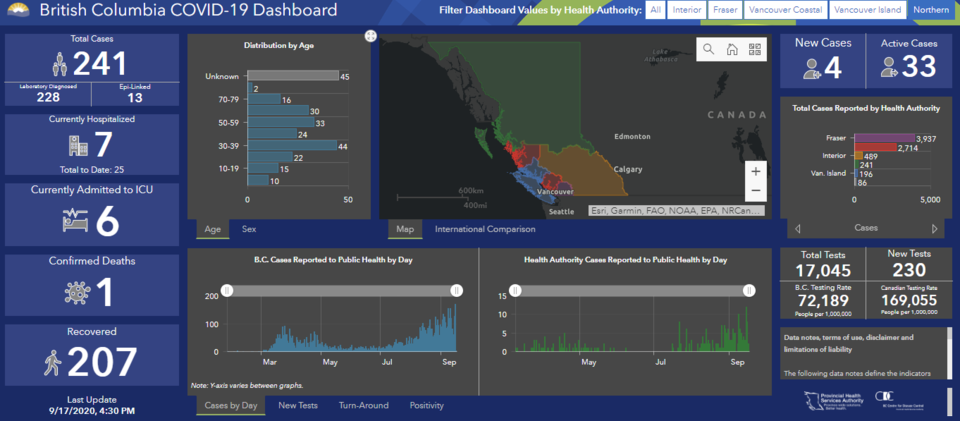Children will not longer have to endure a poke up the nose as part of getting tested for COVID-19.
Provincial health officer Bonnie Henry said Thursday a new "made-in-B.C." sample collection program has been launched in which youth ages four to 19 years old will instead provide the results from a mouth-rinse gargle at their respective assessment centres.
"This is a new saline gargle where you put a little bit of saline, that sterile water, in your mouth, you swish it around a little bit and you spit into a little tube," Henry said. "It's an easier way to collect it for young people."
She said it can be carried out by the youth themselves or with the help of a parent. A B.C. company will be providing the collection tubes, Henry added.
She said officials want to make it available for everyone but due to supply issues will restrict it to young people for the time being.
The announcement came as the province saw 165 new cases added to the running total, a record number for a single day, with patients in Northern Health accounting for five of the total.
Active cases in Northern Health stood at 33, down by one from the day before, while hospitalizations held steady at seven. However, the number in intensive care totalled six, up from zero the day before. There were seven in ICU on Tuesday.
There was also one more death in B.C., a senior on long-term care in Vancouver Coastal Health, pushing that total to 220.
Active cases stood at 1,705, up by 91. Of that 57 are in hospital with 22 in intensive care, down by three and one respectively from midday Wednesday.
She said much of the jump in cases is due to large gatherings.
She said the restriction of no more than 50 people is an "upper limit" and only instances where safe distances can be maintained.
"Just because you can fit 50 people into your small back garden does not make it safe," Henry said. "And that's where we're seeing transmission and we're seeing transmission to people we care about and now we're seeing spillover into people like grandparents, like elders who are more susceptible to having severe illness from COVID-19."
Indeed, Henry urged people take it a step further and stick to their bubble of "safe six."
"Spending time with different people on different days significantly increases our personal risk," she said. "It means we are now exposed to many more potential chains of transmission and it's a continued source of transmission that we are seeing in our communities now.
"So in planning our activities, whether it's a play date for your kids, a weekend dinner party, a group of friends getting together, ask yourself if the people are part of your 'safe six.'"



